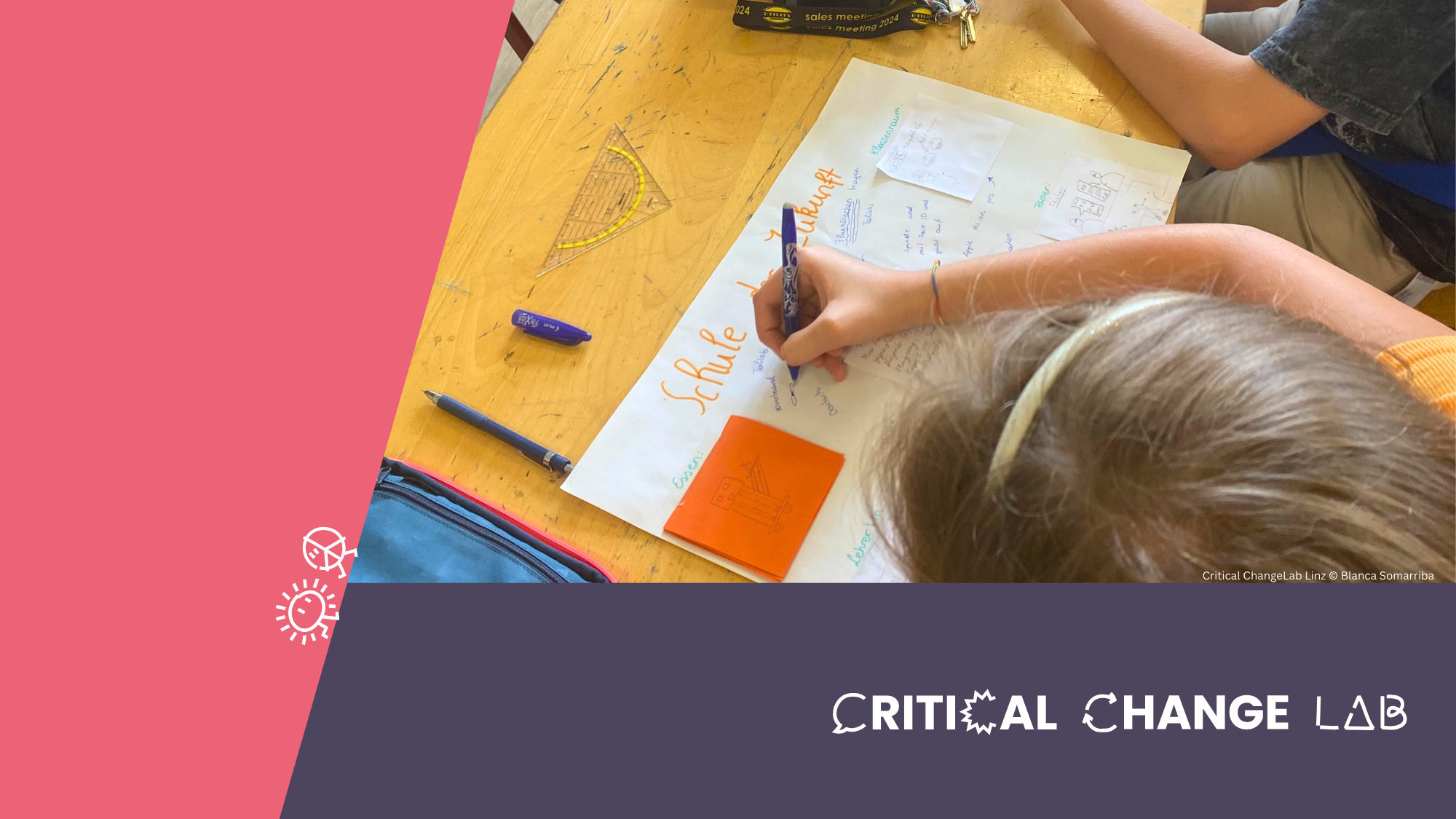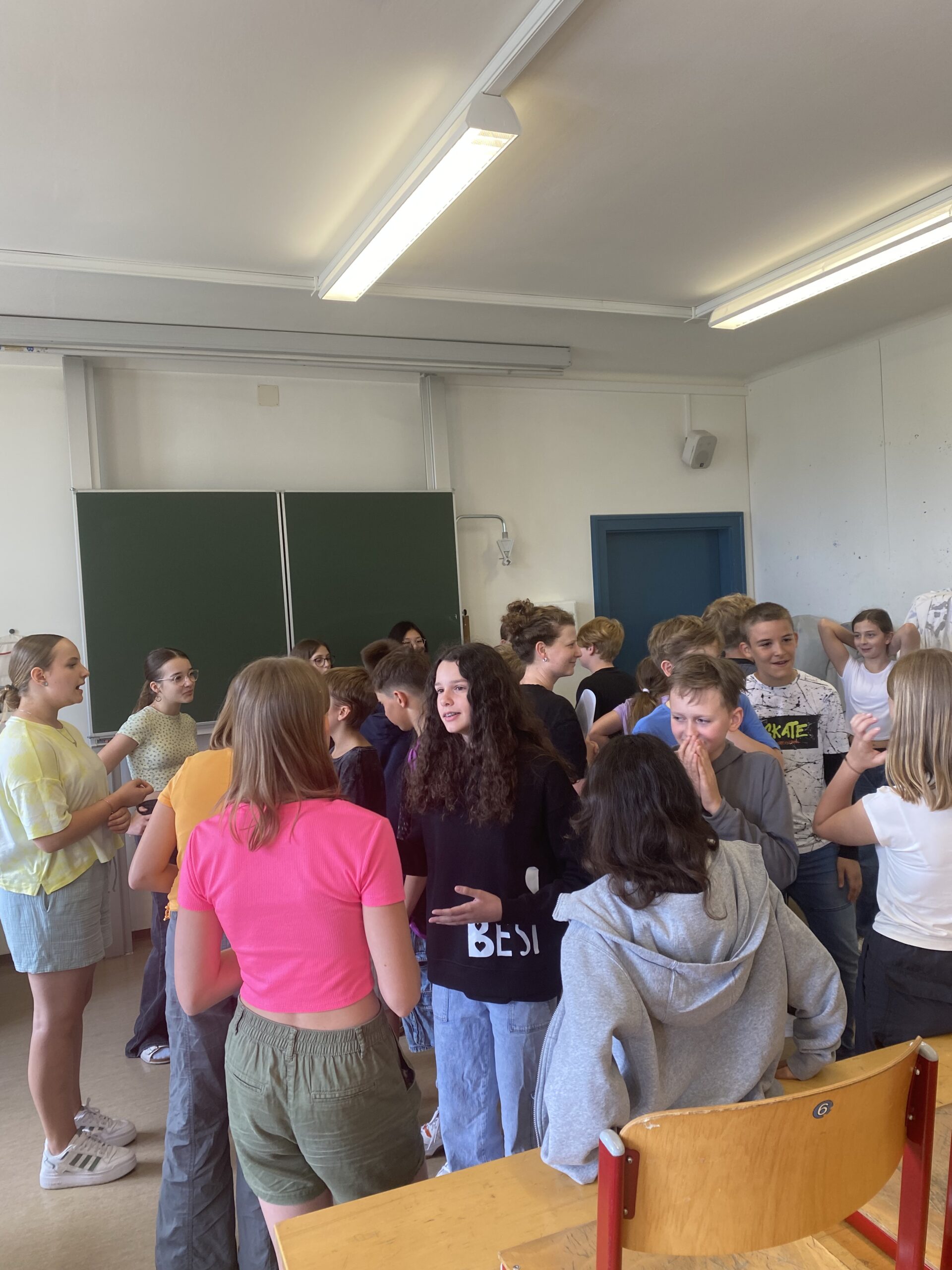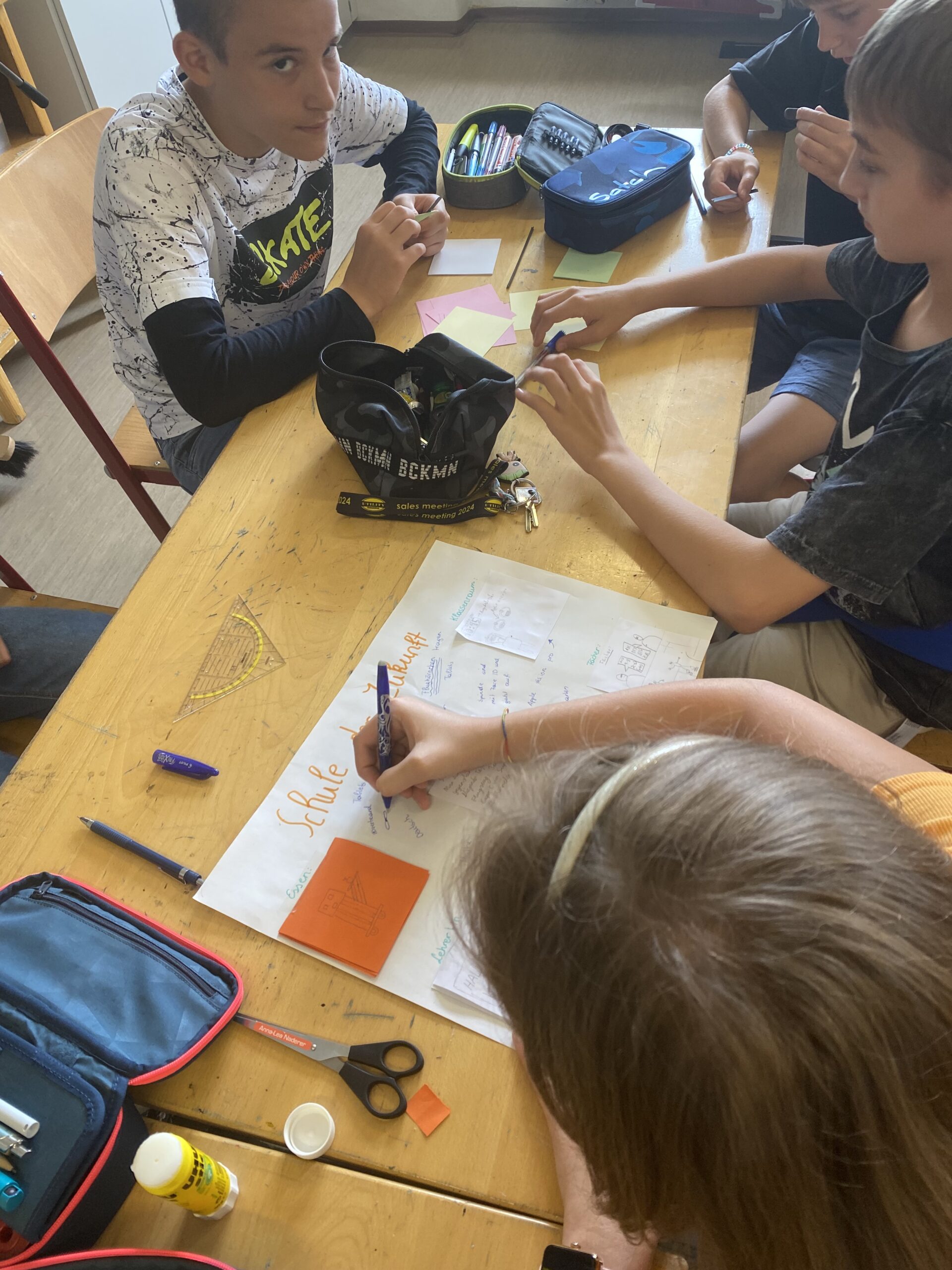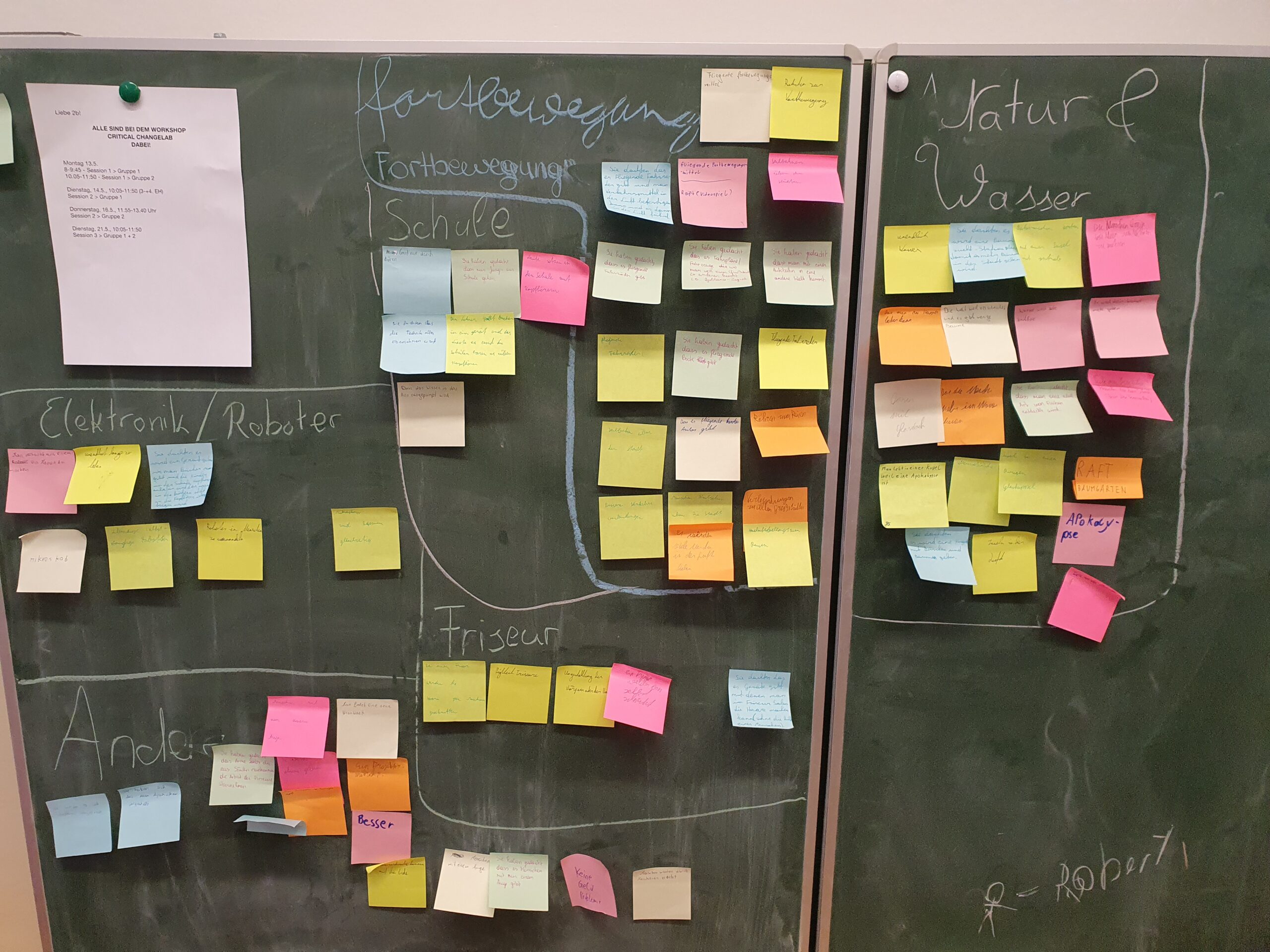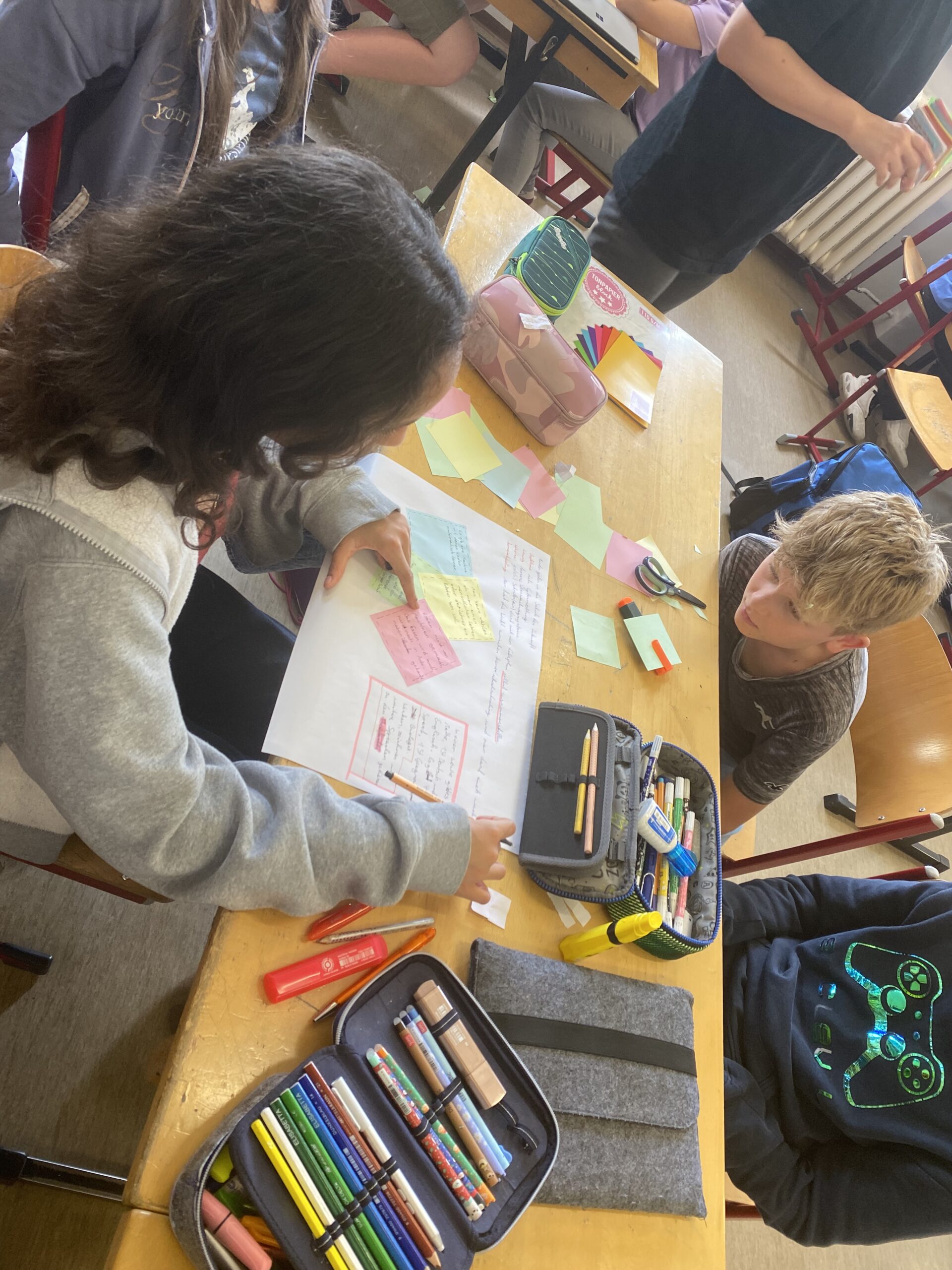The future concerns us all, but it concerns youth even more: they will shape the world and live in it. Amidst catastrophic prognoses and societal polarization, young people report feeling despair, a sense of not being heard and being overwhelmed, as well as general pessimism about their influence on the future.
To foster a sense of agency in deciding how the future should look and to instill greater awareness of democratic decision-making processes in everyday life, Ars Electronica developed a Critical ChangeLab focused on “Envisioning Futures.” Through accessible methods and facilitation on an equal level, youth are enabled to envision a future worth living, reflecting on the different perspectives that shape our world and the challenges that must be faced to build an inclusive and sustainable future.
“Young people are not listened to.”
Jelena, 12 years old
During the three sessions of the PAR Cycle, participants put themselves in the shoes of various human and non-human agents in society, analyze past ideas and concepts of the future in cultural materials, and ultimately create a manifesto with concrete ideas on what should change in their everyday environments. This process allows them to consider issues such as mobility, climate change, education and the role of technology in society, fostering a sense of agency.
In this way, a sense of agency is instilled in the young people: they learn that their perspective is valid, important, and heard, and that they can influence what is to come. Simultaneously, the question of who participates in democratic systems and how is discussed and critically examined. This is closely linked to fostering speculative thinking among participants—thinking about what could or should change. This skill is essential for working towards a fairer future but is often overlooked in traditional learning environments.
“We are not used to this what-if-thinking.”
Charlotte, 12 years old
Working within the constraints of the school system
The first implementation of the Ars Electronica Critical ChangeLab was conducted at a local high school in Linz, Austria. Thanks to the collaboration with the school, a class of 24 students aged 12 was divided into two groups that each took part in the three sessions of the first CCLab cycle. Additionally, the CCLab was conducted with a small group of 18-year-old Viennese students who are currently working with create your world, a key stakeholder of the CCLab at Ars Electronica, to develop a series of podcasts and a panel discussion as part of the Ars Electronica Festival 2024.
What stood out with both groups was that young people have a deeper knowledge of democracy and activism than expected. The young participants were very aware of how democratic principles play a role in their everyday lives but also recognized the limited influence young people’s perspectives have. Both groups engaged enthusiastically in the process, but it became clear that some thinking processes and discussions needed more time to develop properly. Especially in the school context, the rigid schedule and existing group dynamics posed challenges in facilitating the CCLab. Overall, the CCLab successfully fostered critical thinking and a sense of agency in young people, helping them realize that the future depends significantly on them. While the younger students focused on what they thought should change in the education system—a topic closely related to their everyday lives—the older students were particularly interested in societal polarization and how public discourse can be more constructive.
“It made me realize that what was once imagined as the future has become our present reality.”
Konstantin, 18 years old
What’s to come: The next Critical ChangeLab at Ars Electronica Festival 2024
As preparations begin for the second iteration of the Critical ChangeLab at the Ars Electronica Festival 2024, the process is being adapted to fit an Open Lab structure. This aims to address the time constraints of the first cycle and to provide even more opportunities for the open exchange of ideas and reimagining the future. In cooperation with FM4, a national youth radio station, participants will have the chance to communicate their perspectives and opinions—developed in the Critical ChangeLab process—in podcasts as part of the series Frischer Wind (“A Breath of Fresh Air”), created by participants of the first Critical ChangeLab. These podcasts will be produced and published directly at the festival. Additionally, participants can engage in the accompanying youth conference “Frischer Wind. A Critical Change Conference.” Organized by young people, this conference aims to discuss the state of permanent crisis our society seems to be in and what needs to change in the future.
Join our newsletter to continue to be updated on what we’re up to at #CriticalChangeLab. We’ll always keep it interesting, and only send you updates for as long as you want us to.
